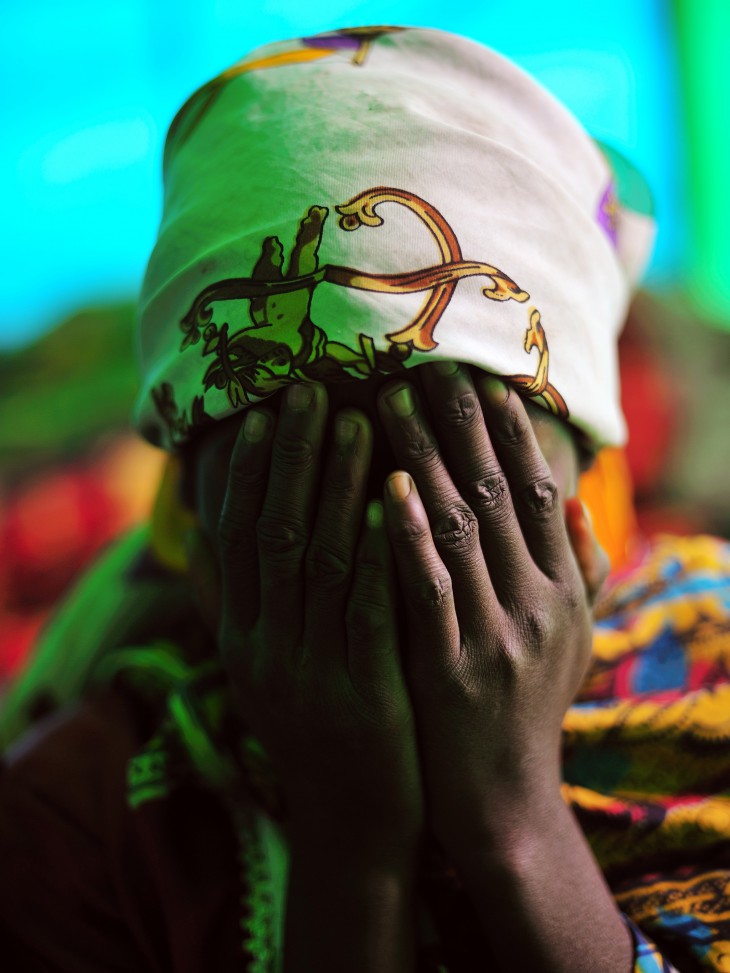Sexual violence: A tragic and taboo scar of South Sudan’s conflict

An unwanted pregnancy. Exposure to HIV. Physical pain. Psychological scarring. The risk of social isolation. Lower likelihood of marriage. Perhaps worst of all, forced marriage with the perpetrator. Countless conflict-related rapes have occurred across South Sudan in the last year alone in locations where fighting has taken place.
To skip to facts and figures, Jan-March 2016
The potential consequences of rape and other forms of sexual violence in South Sudan for the overwhelmingly female victims (men also suffer attacks) are heartbreaking and long-lasting. Neither youth nor advanced age provide protection from such attacks. One victim the ICRC has met with was only 4 years of age.
When sexual attacks happen, victims go to great lengths to mask the assault. One rape victim whom the ICRC assisted walked two days from a refugee camp in Gambella, Ethiopia to a health clinic in Upper Nile. She had already lost her husband in the conflict, and before making such a difficult journey on foot she had to arrange for someone to care for her four children. And she felt she had to do so without telling anyone she had been raped, because of the stigma she would suffer.
"Sexual violence shatters communities and rips family bonds apart in provoking deep shame for the victim as well as devastating levels of psychological torment," said Aurore Brossault, in charge of mental health and psycho-social support at ICRC in South Sudan. "How can mother and child keep the same relationship if the child had been forced to witness the mother's rape? It is unimaginable!"

A 14-year-old girl, survivor of sexual violence, in a treatment centre in North Kivu, Eastern Congo (2008). © Lynsey Addario / Getty Images Reportage
Even if nearby assistance is available – since wide swaths of South Sudan have no functioning medical facilities – the social stigma is so severe that too many choose not to seek help.
A lot of victims do not know that medical assistance can prevent disease and unwanted pregnancy. Victims fear that their case will not be treated confidentially. And there is a general misunderstanding from the victims and the authorities whether victims of sexual violence need first to report their case to the police before seeking medical treatment.
Education is important to avoid stigmatization. Last year the ICRC held sexual violence awareness building sessions with hundreds of South Sudanese including health staff, birth attendants, local leaders, police officers, members of armed groups and volunteers of the South Sudan Red Cross Society.
This year the ICRC will seek to address with communities the stigma that serves as a barrier to access care and will stress the importance of looking for help as quickly as possible. The support provided by the ICRC is tailored to the needs of the victims. If a woman reports a case within three days, we can provide medical treatment to prevent HIV, pregnancy and sexually transmitted diseases. After three days we will be able to treat sexually transmitted diseases only. Psychosocial assistance is available at any stage.
The prohibition of rape is one of the oldest and most basic rules of war. The Geneva Conventions clearly prohibit it in both international and non-international armed conflicts. ICRC in South Sudan is working with armed groups across the country to remind them of their obligation to spare civilians from harm. Sexual violence must never be a tactic wielded in conflict.
We seek to break the taboo that surrounds the victims and prevents too many women, girls, men and boys from seeking the medical and psychological assistance that is so critical to recovery.
See also:
Highlights of our work in South Sudan, January - March 2016
 | 180,000 people received food rations. |
 | 200,000 patients benefited from support to 6 health facilities. |
 | 40,000 people were provided with clean water. |
 | 80,000 heads of livestock were vaccinated. |
 | 4,300 detainees were visited throughout the country. |
 | 8,000 phone calls were facilitated between family members across the world. |
 | 1,200 members of armed groups from both sides of the conflict were trained in international humanitarian law (IHL). |
For more information, read the full update on our work in South Sudan.

